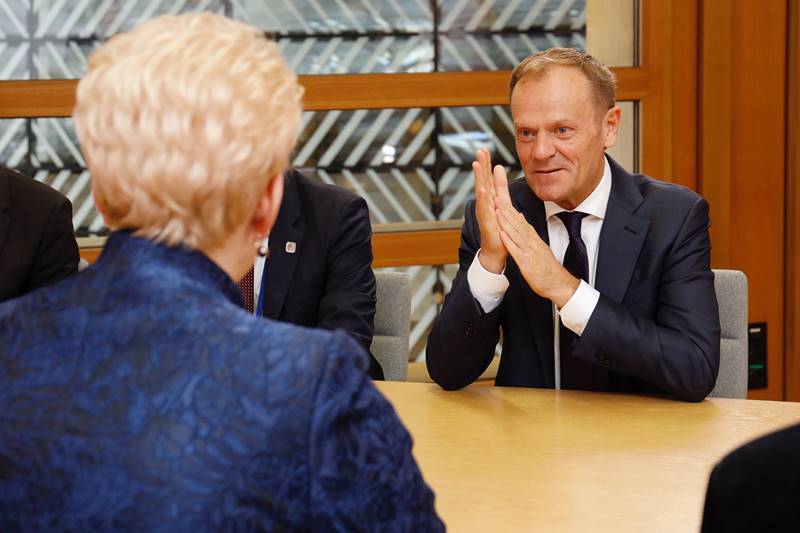Bilateral talks that are not just about seeing each other
(B2) Donald Tusk is currently receiving with a vengeance, visibly or very discreetly. Objective: to sound out the Heads of State and Government on their preferred candidate to succeed him as President of the European Council

During the last summit of Heads of State and Government, on April 10, devoted to Brexit, Donald Tusk received successively the Slovenian Marjan Šarec, the Lithuanian Dalia Grybauskaitė, the Latvian Krišjānis Kariņš, the Dutchman Mark Rutte, and, of course, sure, Theresa May
Ritual interviews... but not only
The President of the European Council regularly receives his counterparts for short talks before the summit, those he has not been able to see on other occasions. But, in this case, it was not just a question of preparing for Brexit. The period of the European elections is approaching. And Donald Tusk began to sound out everyone to find out who they saw – or who they did not see – replacing him at the head of the European Council, as in the succession of Jean-Claude Juncker at the European Commission. The questions are generally quite open-ended in two ways — who would you see for this position? who would you not see — or even more direct — are you a candidate or do you have a candidate?
A handover between Eastern Europeans
With Dalia Grybauskaite, who will end her duties as Lithuanian president in a few days, the meeting took place in the friendliest possible way, according to what we were able to learn. Between the two leaders from Eastern Europe, there is a certain convergence of views. And beyond the different political labels that may exist between the governments of the countries of Central and Eastern Europe, there is an intrinsic desire: to have one (or one) of theirs occupy one of the leading positions (the 'top leaders' ).
A certain vision of Europe, integrated, but not too firm vis-à-vis Russia
It is a question, in fact, of not leaving all the room for maneuver to the Franco-German couple and of being able to make their views heard. They want to retain certain European achievements which they consider fundamental, in particular freedom and equal access to the market. Finally, vis-à-vis Moscow, they are campaigning for a policy of firmness, which is vital for these countries bordering Russia... It remains to be seen whether this handover would suit the other members of the European Council.
(Nicolas Gros-Verheyde)
Read also: European Council, Commission, High Representative… Who to occupy the top European jobs in 2019?
